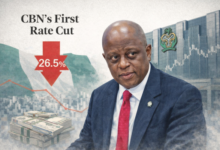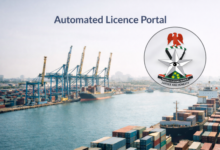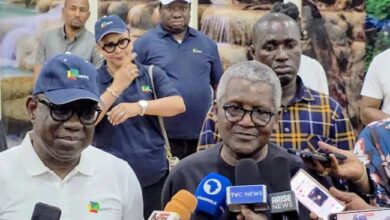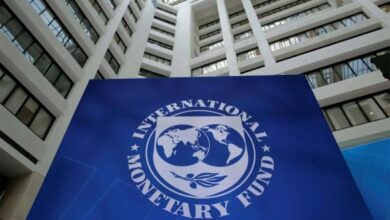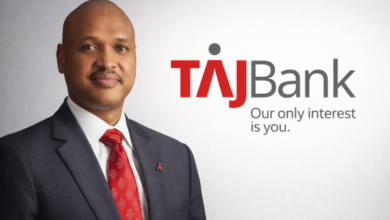Overhaul downstream sector, Experts task petroleum minister

Some stakeholders in the oil and gas industry have called on the Minister of State, Petroleum Resources, Mr. Heineken Lokpobiri, on the need to overhaul of the downstream sector for effective performance.
They made the call in separate interviews on Tuesday in Lagos while expressing their expectations from the minister.
BRANDPOWER reports that President Bola Tinubu on Aug. 21 inaugurated his team of ministers.
Alhaji Debo Ahmed, President, lndependent Petroleum Marketers Association of Nigeria (IPMAN) expressed the need for increased accountability, productivity, and local content involvement, particularly in the downstream sector.
Ahmed said that all refineries in the country should to be operational to reduce the importation of refined products and conserve foreign exchange.
According to him, operations within the midstream should ensure local contents, especially in raw materials, employment opportunities for our youths, building capacity for the local environment and ensure qualities and standard practice.
“The minister should also ensure that our upstream sector meet up OPEC quota, produce to meet upcoming modular refineries demand for crude oil and also break oil theft syndicates. This will allow Federal Government to meet its OPEC quota and have surplus for local refining,” he said.
The IPMAN boss reiterated that the ministers before their deployment already knew the challenges that were confronting the oil industry, saying they had to set their agenda to address them.
Ahmed said, “For the first time in the history of this country, Ministry of Petroleum Resources has been split into two, separating gas from the main petroleum resources and now known as Ministry of Gas Resources.
“I think Mr President realised the importance of gas in the global energy transition syndrome, global warming, green energy and clean energy, less emissions in climate changes.
“Since Nigeria can also be a key player in the global gas energy sources and at the same time play a very significant role in competing with fossil oil in this our deregulation regime.
“By properly harnessing the potential of our gas resources which will give us our much needed foreign exchange and also reduce our dependence on only one source of energy, hence the creating of the gas ministry,” Ahmed explained.
He said that IPMAN’s expectations from the minister is to ensure that the ministries is be able to harness the full potential of the resources in each department to its maximum advantage.
Ahmed said that this would boost the nation’s foreign exchange earnings and increase gas production, meet up the trans-antlantic gas supply to Europe as well as the local gas and fuel requirements.
According to him, IPMAN members are ready to partner with the government in promoting the usage of gas throughout its filling stations nationwide.
“With the two ministries competing between fossil oil and gas, competition has shifted from the market place to the production arena, which is to the best interest of the government to earn more foreign exchange and to also leverage local consumption.
“The challenge facing the Nigeria petroleum industry is not as a depleting natural resources but as a result of man made corrupt tendencies imbibe in the system.
“Take for instance, we cannot meet our OPEC quota because of oil theft.
“The oil thieves steal more than half of what Nigeria produces for export on monthly basis. Nobody is sanction.
“The new ministry of petroleum resources should be able to block such loophole.
“Oil blocks should go to companies who are ready to explore the oil and account for whatever quantity of crude derivable,” he added.
Ahmed advised that there should be a benchmark which would undergo the strictest of scrutiny to each block of oil allocated and the monthly oil output should be based on the expected benchmark.
He added that all loading vessels should be properly documented from their tonnage, the register number, their country of origin.
According to him, any vessel roaming the waters should be arrested and prosecuted by naval authorities to curb theft.
He advised government to ensure that gas flaring should be a thing of the past.
“More local contents should be deplore in the storage, transportation and distribution of gas locally and for export to ECOWAS sub-region as well as other European countries to dominate the market as war between Russia and Ukraine ravages.
“IPMAN has been in the forefront of petroleum distribution, storage and marketing, we can still do same in the gas sector.
“The ministers have to block the loopholes of waste and corruption, digitalisation of the system and employment of more Nigerians in almost all the aspects of operations.
Ahmed said that government had been magnanimous to introduce an alternative petro, which is Compressed Natural Gas after the removal of oil subsidy.
He advised government to stop oil thefts and increase oil output, while ensuring zero gas flaring and conserve such gas output to meet local consumption and export.
“Government should deploy digital technology to aid the nation’s oil production and to stern off leakages.
“Government should also shuffle oil blocks allottees and remove quack companies.
“The main agenda of the newly inaugurated minister of petroleum is to find a way to mitigate the hard effects of oil subsidy removal on the people and to ensure that the programmes lay down by government are hasten up.
Similarly, Mr Ademola Adigun, an energy consultant, said that the key agenda was to get the oil sector back on track.
Adigun that all the efforts that went into developing the Petroleum Industry Act (PIA) should not be seem to be in vain.
He added that the ministers could undertake a review of the two ministries and ensure their outcomes were in line with the ambitions of the current government.
“The case of boosting production is dependent on many interdependencies and ensuring adherence to the existing laws.
“They should ensure work plans are apprised and clarity is made on the process of divesting for companies.
“Both ministers should seek to reorganise the sector through stakeholders consultation for vision alignment,” he said.


